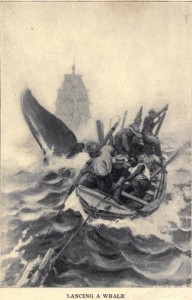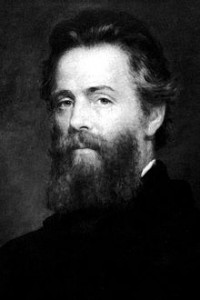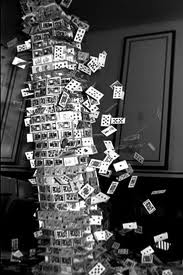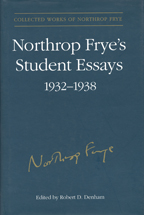In response to Trevor Losh-Johnson’s recent post, this passage from Words with Power:
Themes of descent often turn on the struggle between the titanic and the demonic within the same person or group. In Moby Dick, Ahab’s quest for the whale may be mad and “monomaniacal,” as it is frequently called, or even evil so far as he sacrifices his crew and ship to it, but evil or revenge are not the point of the quest. The whale itself may be only a “dumb brute,” as the mate says, and even if it were malignantly determined to kill Ahab, such an attitude, in a whale hunted to the death, would certainly be understandable if it were there. What obsesses Ahab is in a dimension of reality much further down than any whale, in an amoral and alienating world that nothing normal in the human psyche can directly confront.
The professed quest is to kill Moby Dick, but as the portents of disaster pile up it becomes clear that a will to identify with (not adjust to) what Conrad calls the destructive element is what is really driving Ahab. Ahab has, Melville says, become a “Prometheus” with a vulture feeding on him. The axis image appears in the maelstrom or descending spiral (“vortex”) of the last few pages, and perhaps in a remark by one of Ahab’s crew: “The skewer seems loosening out of the middle of the world.” But the descent is not purely demonic, or simply destructive: like other creative descents, it is partly a quest for wisdom, however fatal the attaining of such wisdom may be. A relation reminiscent of Lear and the fool develops at the end between Ahab and the little black cabin boy Pip, who has been left so long to swim in the sea that he has gone insane. Of him it is said that he has been “carried down alive to wondrous depths, where strange shapes of the unwarped primal world glided to and fro . . . and the miser-merman, Wisdom, revealed his hoarded heaps.”Moby Dick is as profound a treatment as modern literature affords of the leviathan symbolism of the Bible, the titanic-demonic force that raises Egypt and Babylon to greatness and then hurls them into nothingness; that is both an enemy of God outside the creation, and, as notably in Job, a creature within it of whom God is rather proud. The leviathan is revealed to Job as the ultimate mystery of God’s ways, the “king over all the children of pride” (41:34), of whom Satan himself is merely an instrument. What this power looks like depends on how it is approached. Approached by Conrad’s Kurtz through his Antichrist psychosis, it is an unimaginable horror: but it may also be a source of energy that man can put to his own use. There are naturally considerable risks in trying to do so: risks that Rimbaud spoke of in his celebrated lettre du voyant as a “dérèglement de tous les sens.” The phrase indicates the close connection between the titanic and the demonic that Verlaine expressed in his phrase poète maudit, the attitude of poets who feel, like Ahab, that the right worship of the powers they invoke is defiance.



